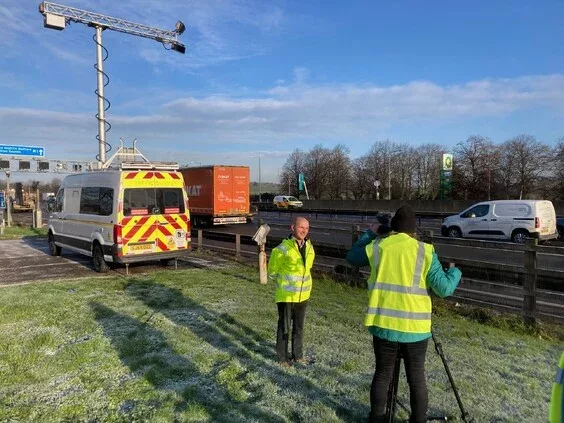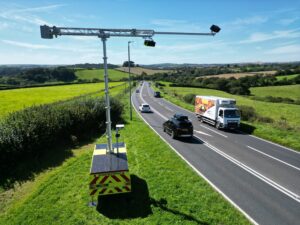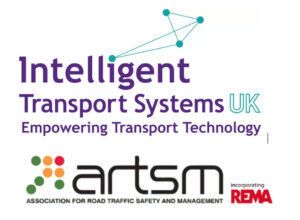One of the UK’s leading experts in enforcement technology has written a reflection on road safety in which he highlights the value of technology in improving road safety and discusses how it can be made easier for authorities to implement safety schemes, asking “If technology can reduce the loss of life, why not use it?”
Writing on LinkedIn to mark the UN’s Road Safety Week, the Acusensus UK General Manager and Chair of ITS UK’s Enforcement Forum, Geoff Collins, notes that, while the UK’s roads are comparatively safe on a global scale, latest official figures show that there were an estimated 1,558 reported road deaths in the UK in 2021.
“Just stop and think about that for a moment,” he writes. “More than one and a half thousand people lost their lives on the UK’s roads in 2021. That is more than four people a day, 30 people every week, who left with a “see you later” one day and never came home. 1,558 people is 1,558 people too many.”
He then explains how, as someone who has worked in enforcement for 20 years, “you won’t be surprised” that he believes technology has a greater role to play in making our roads safer, and that it frustrates him it is not embraced as much as it could be.
“Enforcement cameras, along with other engineering solutions have undoubtably made a difference where they have been installed, in many cases delivering a significant reduction to the number of casualty collisions that occur,” he continues. “However, many drivers are ‘smart’ and know where the cameras are, and therefore where they feel they can ‘get away’ with driving faster than the limit. If network wide compliance and safety is the objective, then I suggest an increase in the number of these cameras across the network to make driving within the limit a thing of habit, rather than something to remember to do in certain places, or when someone is watching. The figures speak for themselves.
“The company I work for here in the UK has terrific new technology to deal with distracted driving and not wearing a seatbelt. The Acusensus ‘Heads Up’ cameras use AI technology to monitor driver behaviours, as they drive past some clever roadside technology, which analyses images taken through the windscreen to flag if they are not wearing a belt, or if they’re holding a mobile phone.”
He talks about how in Australia, the first state-wide roll-out of Acusensus cameras in New South Wales in 2019 has had a significant impact on driver behaviours with the number of mobile phone detections falling by a factor of six. He then tackles the issue of schemes’ funding and also the widespread problem of people not wearing a seatbelt in a car saying, “When people do stupid, selfish things, but there is technology to dissuade them from doing so, shouldn’t we use it to save them from themselves?”
Many aspects of road safety, enforcement and driver education are covered in this thought leadership piece which concludes with a strong statement underlining the value of the technology.
“I challenge the newspaper headlines claiming automated enforcement is somehow a “war on the motorist”,” he says. “It is not, but it is a battle against bad and dangerous driving, and – when I think of the 30 people each week who we lose – this is a war I am proud to fight.”
Read the whole blog post here.
(Picture – Geoff Collins filming for the BBC Frontline: fightback documentary by the M1 at Toddington, courtesy of his LinkedIn page)
























